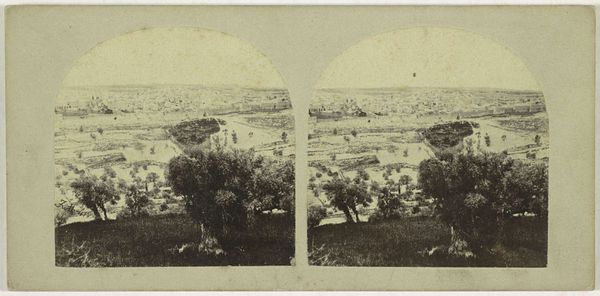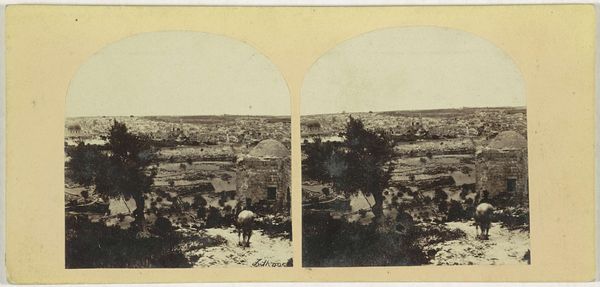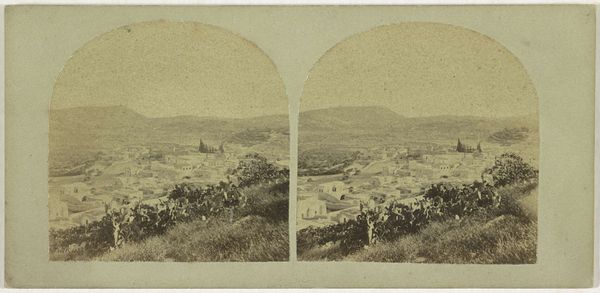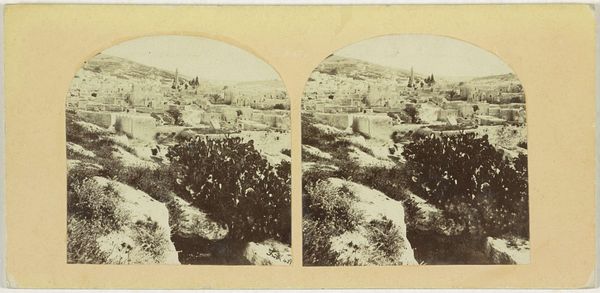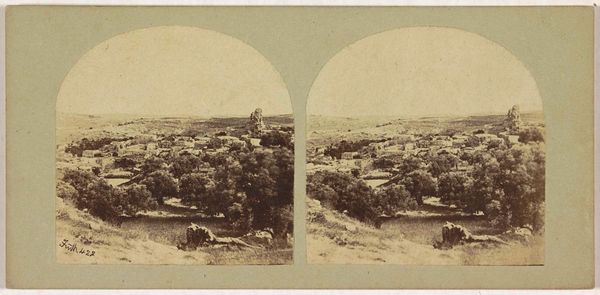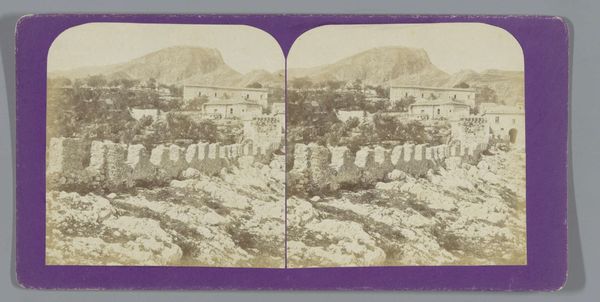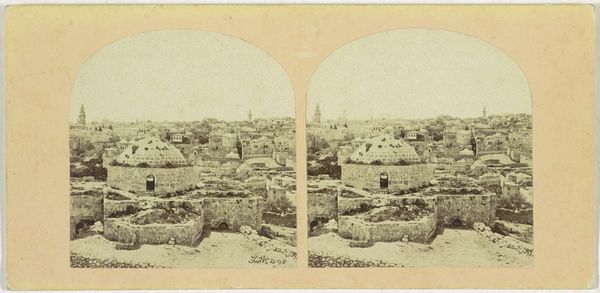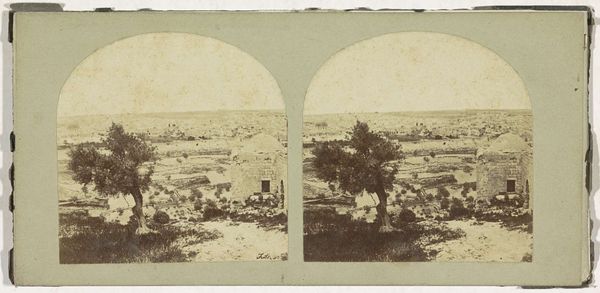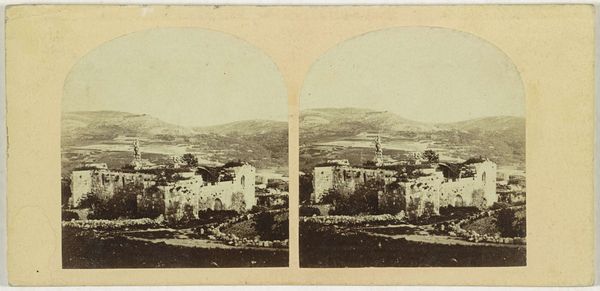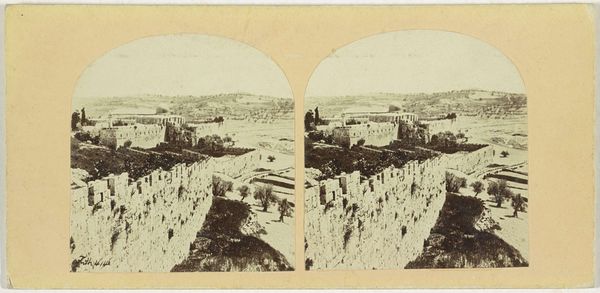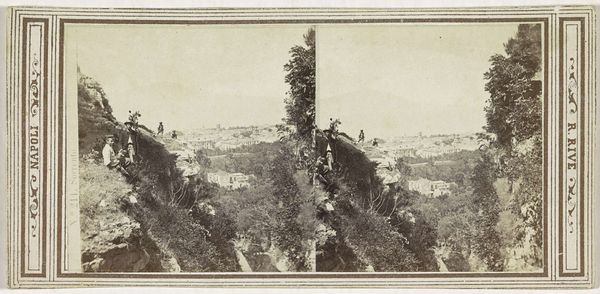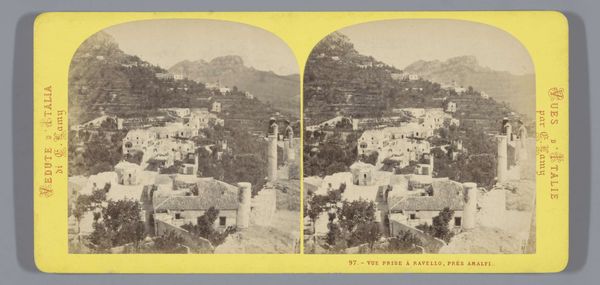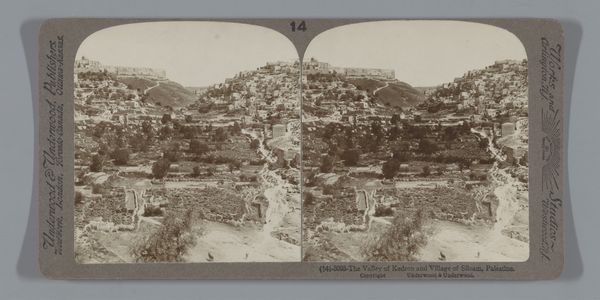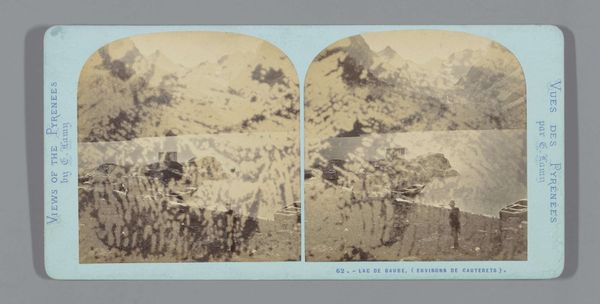
photography, gelatin-silver-print
#
landscape
#
etching
#
photography
#
orientalism
#
gelatin-silver-print
#
cityscape
#
realism
Dimensions: height 82 mm, width 172 mm
Copyright: Rijks Museum: Open Domain
This stereograph, “View of Jerusalem from the Spring of Rogel,” was produced by Francis Frith sometime in the mid-19th century, using photographic chemicals, paper, and a dual-lens camera. This image is not only a representation of a place, but also an artifact deeply embedded in the history of photographic processes. The albumen print process, used here, involves coating paper with egg white and silver nitrate, a labor-intensive procedure that yields a distinctive glossy surface and fine detail. In this stereograph, the tonal range is subtle, the light delicate. Frith’s choice of this photographic method speaks to the complex intersection of art, science, and industry in the 19th century. The act of photographing was as much a scientific endeavor as an artistic one, demanding a particular kind of skill. This approach challenges our conventional distinctions between art and craft, asking us to consider the photographer not just as a recorder of scenes, but as a maker deeply involved in the transformation of materials.
Comments
No comments
Be the first to comment and join the conversation on the ultimate creative platform.
